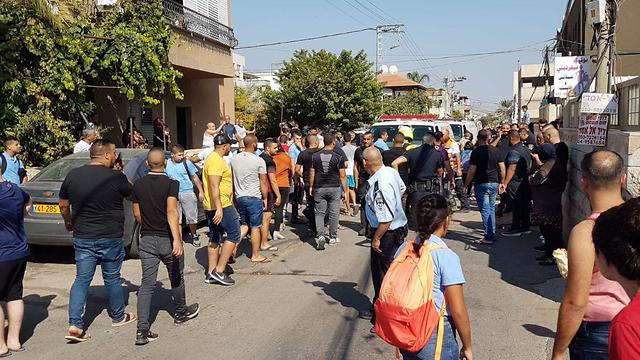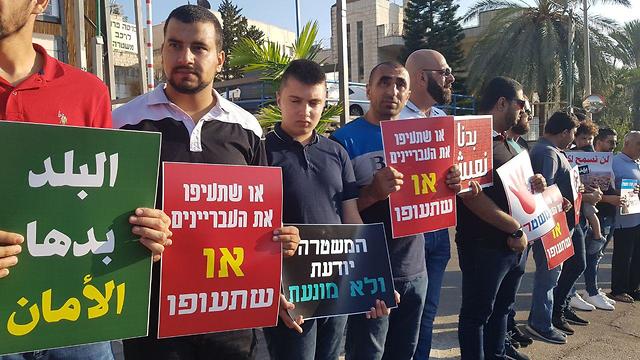
Israel Police must protect Arab citizens too
Opinion: Israel's largest minority has lost faith in almost every aspect of their lives as widespread use of illegal guns makes every disagreement potentially deadly; it is up to the state to show that it cares as much about Arab communities as it does about Jewish ones
Imagine a scenario where a shop in the middle of the nearby Jewish city of Karmiel came under gunfire, a mere 10-minute walk from kindergartens and preschools as children were finishing their school day.
What would the police do? How many journalists would race to the scene? How would the public security minister and the prime minister react?
The Arab community in Israel is stranded, helpless against this phenomenon of extreme violence. It is a phenomenon that has claimed 11 victims since the beginning of September alone.
This is a community that has been through huge changes in the last two decades regarding its classic social structures and mechanisms, along with huge steps in modernization. These changes have caused the community to lose its traditional ability to deter this sort of violence.
Israel's Arab citizens have lost faith in almost every aspect of their lives, including each other. This expanded use of illegal weaponry in Arab society caused every disagreement to potential turn bloody.
They have lost faith in their local, political and religious leaders, who have shown that they do not have the proper tools to face such criminal organizations.
These organizations have grown to enormous proportions and have taken control of the economy of any village showing growth and prosperity.
Their faith in Israel's government and police was lost long ago, especially after the October 2000 riots, which occurred 19 years ago this week.

Then, the Arab community sacrificed 13 of its youngest for freedom, justice and equality. Today, they sacrifice dozens of them every year to violence.
In the years since October 2000, the police have not shown any physical presence inside the Arab villages, have not operated in them and have not seen the Arab citizenry as worthy of protection.
Only in 2016 did the government decide to start operating police stations inside the villages. These were accepted half heartedly by the Arab citizens: on the one hand, they realized the scale of the crisis and the need for broader and equal policing for their protection.
But on the other hand, the police were seen as part of the problem. How would you explain to the average Arab citizen a reality in which the state allows thousands of illegal arms to remain in their homes? How is that the police, which can recruit hundreds of officers to guard the demolition of Arab homes, cannot stop these criminal organizations?
A year ago, a map was given to the public security minister detailing almost all the Arab crime organizations. He disregarded the map, citing a budget cut of almost 33%, and said the issue would be taken care of later. To this day, the map still sits in the minister's drawer.
Leaders within the Arab community have declared a general strike for Thursday, as MKs from the Joint List declared they would boycott the first day of the new Knesset in protest.
The Arab community understands these are old-fashioned protest tools that have not helped in the past and probably will not help now. They want dramatic change.
The Arab community is not violent; police statistics show that only 6% of Arabs are involved in criminal activity. The police have realized over the last two years that security cannot be enforced with slogans or selective enforcement, such as traffic laws, while neglecting the real painful issue - the guns and the shootings.
The police must launch a massive operation to collect all the illegal weaponry, as many countries in similar situations have already done in the past. They must identify the villages that are crime ridden, post command and control centers there and assign investigative units immediately to catch those responsible and bring them to justice.
Furthermore, those police chiefs and intelligence officials who have failed in their duties need to be replaced. Voices calling for the closure of police stations have already been heard.
If the police continue to fail in their duty to eradicate the problem, they will also be guilty of refusing to acknowledge the issues and abandoning the Arab community.


















